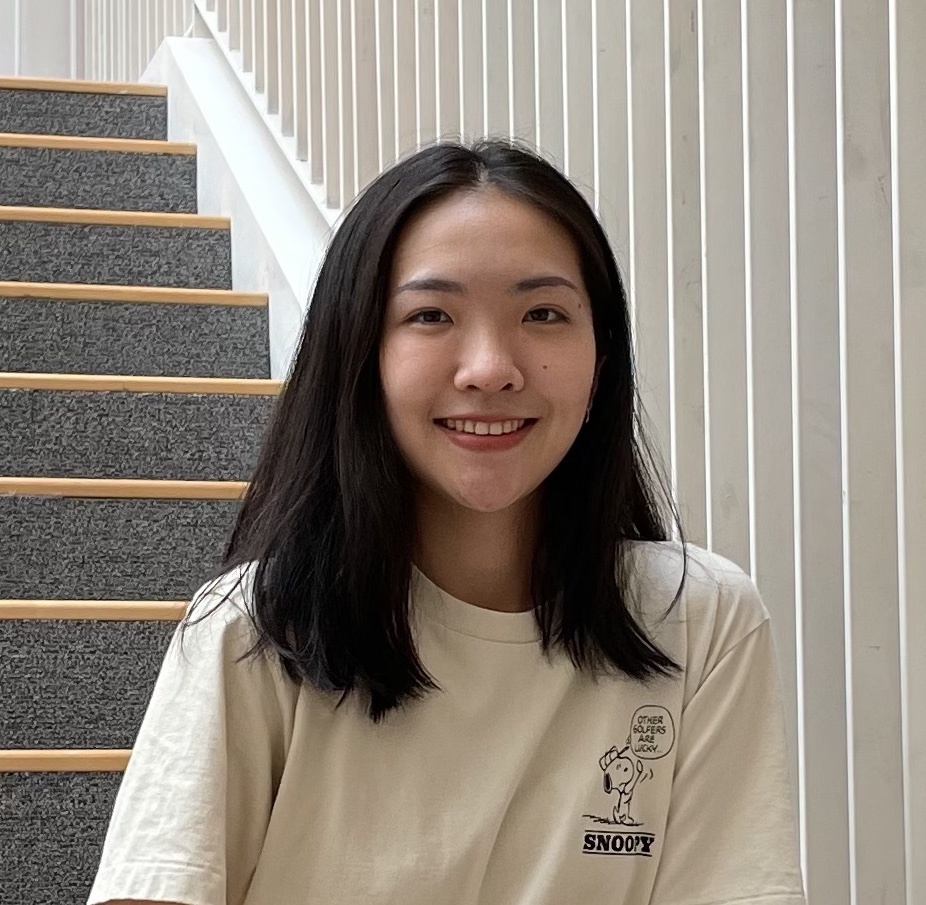Jenny Fu has had a longstanding interest in emotions. “I’m fascinated by the idea of what makes people happy,” said Fu, a third-year doctoral student in the field of information science in the Cornell Ann S. Bowers College of Computing and Information Science.
This fascination has prompted her to embark on research that seeks to support people’s long-term happiness. Her current work in the Robots in Groups lab, directed by Malte Jung, associate professor of information science and the Nancy H. ’62 and Philip M. ’62 Young Sesquicentennial Faculty Fellow, aims to uncover the impacts of artificial intelligence-mediated communication on stress and anxiety levels of university students.
AI-mediated communication is any type of communication, written or visual, that has an agent or “middle man” to modify, generate, or add to it. For example, AI-generated images, which can be posted to social media, are one form of AI-mediated communication.
“I'm interested in allowing people to understand the landscape as well as the impact of this technology in the long term,” said Fu. “How can we use technology to have a better social connection and a more meaningful one that allows us to increase and promote our long-term happiness?”
AI changes the nature of social interactions and can impact our quality of social connections, Fu said. She pointed to the rise of remote work amid the COVID-19 pandemic as an example, noting that “remote working does not simulate the same face-to-face interaction, emotions, and friendship bonding with other people.”
Impression-formation and self-expression through AI-mediated communication are two phenomena Fu hopes to study, particularly in the context of profile creation on websites and apps. She is interested in the ways people express themselves through profile creation using AI-generated text and the way others form impressions based on these AI-mediated profiles. Fu is also interested in analyzing the levels of anxiety produced as a result of both these expressions and impressions.
Fu gives two ways that AI mediums like auto-text complete and visual filters could compound or regulate a person’s anxiety, depending on their use. A socially anxious person wouldn’t appreciate an AI system suggesting “playing sports with friends” as an activity to add to their social media profile, as this could cause intrusive thoughts that they have no one to play sports with, Fu said.
On the other hand, AI could be used to reduce a person’s anxiety. Take public speaking, Fu said, where the old axiom for anxious speakers is to imagine addressing an audience of vegetables. Alternate reality smart glasses, which can allow people to alter their visual realities, can make it possible for someone to create an audience of cucumbers and carrots. But the glasses can also change the dynamic of the interaction on the receiving end since the audience does not share the speaker’s view of themselves as vegetables.
Fu seeks to use various psychological metrics to measure a person’s level of anxiety in response to advancements in AI, which is one aspect of technostress – the distress caused by the effects of technological advancements. Measuring anxiety levels in relation to AI-mediated communication is admittedly quite challenging, Fu said, and she will use a variety of methods such as surveys, interviews, and experimental observations to measure technostress.
As of now, Fu’s research into AI-mediated communication has potential for a whole host of directions, though ultimately Fu hopes to reveal strategies to reduce general anxiety among people. She wants to address the question, “How can we generate insight to inform the future design of technology to support people – to make them more prosocial, as well as make them feel more socially connected and supported?”
By Olivia Pluska, a guest writer for the Cornell Ann S. Bowers College of Computing and Information Science.






